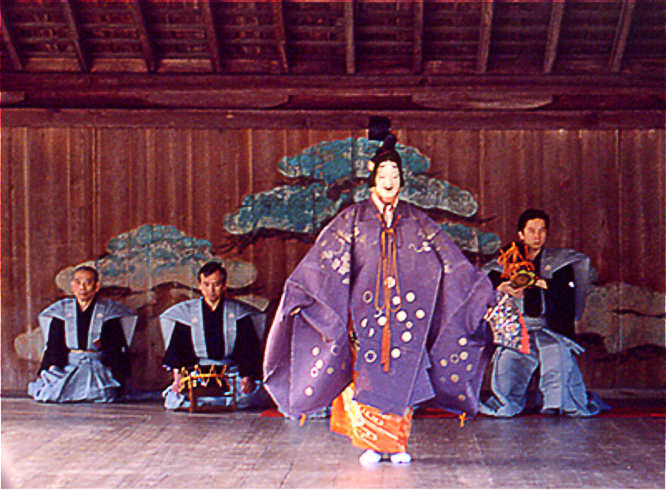Acting in Japan is a form of art that has been practiced since the 11th century. It consists of various forms such as kabuki, noh and gagaku. This type of acting involves improvisation, storytelling, music and dance. Acting in Japan has evolved over the centuries to be accepted by both traditional and modern audiences.

Table Of Content:
- What Does the Japanese word "Seiyu" Mean?
- Kabuki - Wikipedia
- Kabuki Definition & Meaning | Dictionary.com
- Noh - Wikipedia
- 13 Japanese words with no English translation ‹ GO Blog | EF GO Blog
- 17 English Words that Come From Japanese | Merriam-Webster
- The Weird Truth Behind Why Japanese People Can't Speak English ...
- KABUKI English Definition and Meaning | Lexico.com
- What Else Was Lost In Translation - The New York Times
- Kaizen Definition
1. What Does the Japanese word "Seiyu" Mean?
https://www.liveabout.com/seiyuu-definition-144822/Pokemon-Season-03-JohtoJourneys-56a013965f9b58eba4aed2e9.jpg)
2. Kabuki - Wikipedia
https://en.wikipedia.org/wiki/Kabuki
3. Kabuki Definition & Meaning | Dictionary.com
https://www.dictionary.com/browse/kabuki
4. Noh - Wikipedia
https://en.wikipedia.org/wiki/Noh
5. 13 Japanese words with no English translation ‹ GO Blog | EF GO Blog
https://www.ef.com/wwen/blog/language/13-japanese-words-with-no-english-translation/
Jul 14, 2021 ... 13 Japanese words with no English translation · 1. Tsundoku · 2. Otsukaresama · 3. Ozappa · 4. Bimyou · 5. Irusu · 6. Majime · 7. Wasuremono · 8. Nito ...
6. 17 English Words that Come From Japanese | Merriam-Webster
https://www.merriam-webster.com/words-at-play/17-english-words-that-come-from-japanese
7. The Weird Truth Behind Why Japanese People Can't Speak English ...
https://livejapan.com/en/in-tokyo/in-pref-tokyo/in-tokyo_suburbs/article-a0002216/
8. KABUKI English Definition and Meaning | Lexico.com
https://www.lexico.com/en/definition/kabuki
9. What Else Was Lost In Translation - The New York Times
https://www.nytimes.com/2003/09/21/style/what-else-was-lost-in-translation.htmlSep 21, 2003 ... Article offers translation from the Japanese of scene from Sofia ... There is the cultural dislocation felt by Bob Harris (Bill Murray), a washed-up movie actor, ... Here, translated into English, is what the fulmination is really about.
10. Kaizen Definition
https://www.investopedia.com/terms/k/kaizen.asp/GettyImages-457983783-ff61e52ffeff40a3ad5a9a02dc218577.jpg)
What is Kabuki?
Kabuki is a traditional Japanese performing art that has been around since 1603. It involves elaborate costumes and makeup, elaborate sets and movements which are accompanied with music and singing. Today it is performed not only as a form of entertainment but also as an important cultural symbol.
How did Noh theater originate?
Noh theater originated from a 14th-century performance art called shikisan banu which was used to teach morality through song and dance. Eventually the performance incorporated more characters, scenery and actors in masks to create what we now know today as Noh theatre.
What types of stories are usually told in gagaku performances?
Gagaku performances usually involve themes of nature, such as landscapes or everyday life scenes that can be interpreted metaphorically. Gagaku performances will often include mythological stories or elements from ancient texts like The Tale of Genji or Heian period poems depicting love stories or scenes from court life during the Heian period.
How have acting techniques evolved over time in Japan?
Acting techniques have evolved over time due to exposure to other cultures, especially western culture through films or television programmes as well as through new theatrical styles like musicals or documentary theatre. Improvisation continues to be an important part of acting in Japan today with many traditional forms still existing alongside newer forms such as those seen in professional groups like Knee High Theatre Company Tokyo who specialize in physical theatre.
Conclusion:
Acting in Japan has had a long history which has evolved over the centuries due to influence from other cultures and traditions while continuing to hold on to its core values like improvisation, storytelling, music and dance components that make it unique even today.
